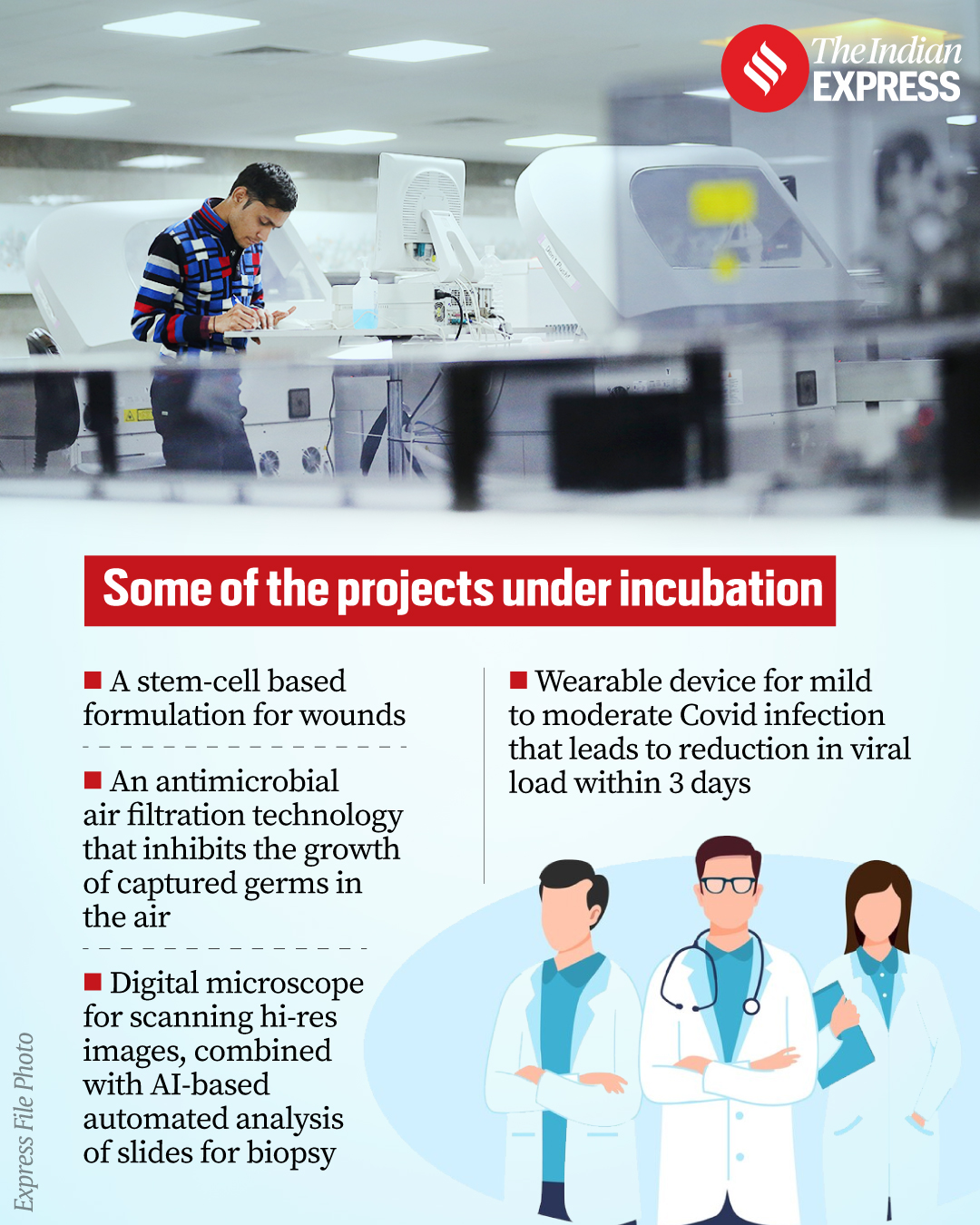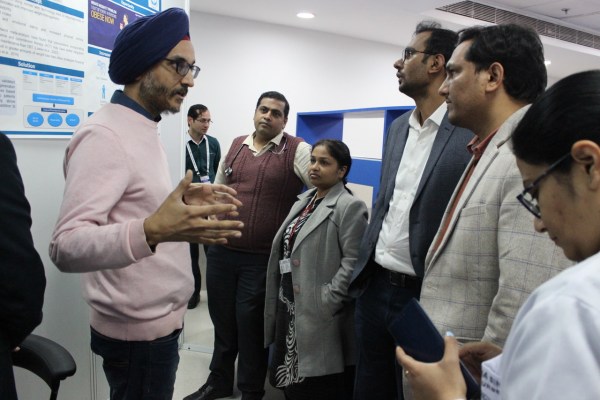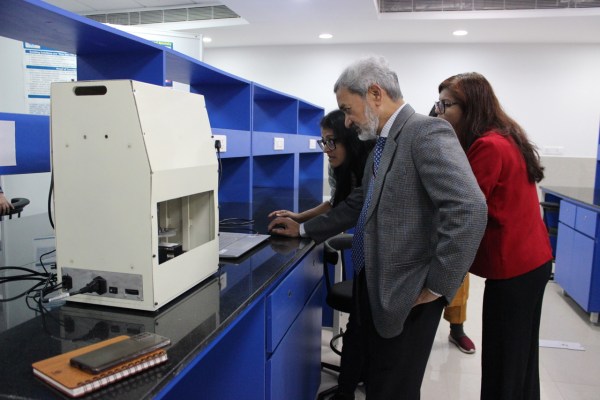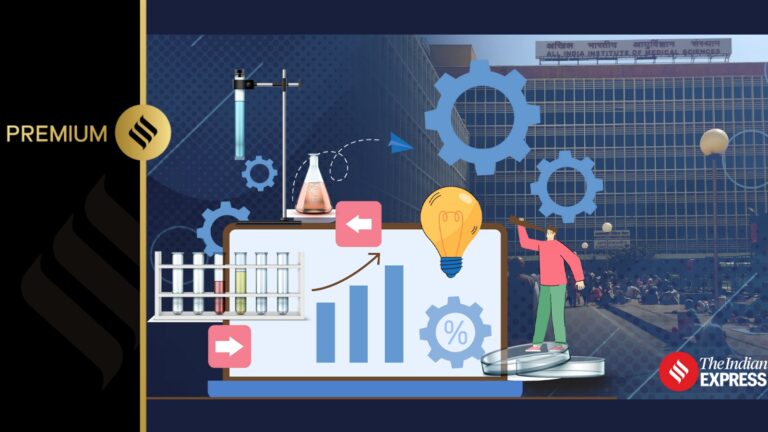What if a stem cell-derived powder could heal accident wounds and regenerate tissue without reconstructive surgery? Or a wearable device could fight mild COVID-19 infections using a self-administered protocol? Or can micromonitoring devices prevent heart failure? These futuristic innovations are part of All India Institute of Medical Sciences' (AIIMS) incubator program for healthtech startups.
Modeled after the Indian Institutes of Technology's (IIT) incubator program, the country's premier healthcare institutions are collaborating with young entrepreneurs to create scalable and practical healthcare products that can be used by both doctors and patients. Developed the software. As part of this initiative, AIIMS will share its vast clinical and biological resources (samples and patients) to help startups develop their products.
10 incubator projects
Currently, 10 such projects are underway in the AIIMS incubator program led by Dr. Alok Thakkar of the Center for Medical Innovation and Entrepreneurship (CMIE) and Head of Otorhinolaryngology and Head and Neck Surgery. “The program was launched in 2022 and is run in collaboration with the Biotechnology Industry Research Assistance Council (BIRAC), established by the Department of Biotechnology (DBT). They are helping us financially.” said Dr. Tucker.
Some of the current projects are in clinical trials, while others are awaiting regulatory approval from the Central Drugs Standard Control Organization (CDSCO), India's drug and medical device regulator.
AIIMS Delhi has set up a new office for 32 innovators at the National Cancer Institute (NCI) in Jhajjar, about 50 km away. Current innovators are expected to move there soon.


“All startups are mentored by AIIMS faculty,” Dr. Thakkar said. According to Dr. Madhusudan Bhat, Head of Business Development, CMIE, AIIMS organized boot camps for entrepreneurs and training programs across OT, ICU and OPD to help them develop patient-friendly products. “We took them on camp visits to help them understand how hospitals work and what gaps this innovation can address,” he says.
Apps, Regenerating Powder, Booster Shots
One of the projects under consideration at AIIMS addresses a common concern: weight loss. Manmeet Kalra and his team are developing a clinically validated app called Zeigen ObesityRx for people who are struggling to lose weight.
“This determines the patient's psychological issues, such as body image, eating disorders, anxiety, and stress, and allows the counselor to prepare a customized plan to get the patient off the weight cliff.” Based on the mapping, counselors first use cognitive behavioral therapy (CBT) or talk therapy, which involves helping obese subjects cope with negative, defeatist, and destructive tendencies. That way, people can get back to a basic level of mental preparedness and readiness to tackle their health,” said Carla, founder and head of products at Zeigen Health. says.
“Current weight loss apps do not target the user's psychology and only focus on training and nutrition plans. However, body dysmorphia and eating disorders are at the root of obesity,” he explained. .

Kalra's app will be trialled at AIIMS in May. If the results are positive, it could go to market, allowing doctors to prescribe the app to patients suffering from co-morbidities such as obesity and diabetes. His 13-member team of experts from the AIIMS Psychiatry Department, including Dr YPS Balhara and Dr Rohit Verma, is guiding the project.
Dr. Suchi Gupta, an academic turned founder of Tech Cell Innovations Private Limited, is currently developing stem cell-based products to treat trauma and burns. She is also working with her five-member team to develop products to treat knee osteoarthritis.
“Stem cell products are very expensive, require high-end refrigeration and storage, and are not very user-friendly, so our products are derived from stem cell byproducts. “We have identified small double-membrane vesicles that are an alternative to these stem cells, which have similar properties and can be developed at a lower cost,” she said.

Dr. Gupta has already developed a powder formulation that can be sprinkled on a wound to promote wound healing and regeneration. “We are also developing sprays and gels. The powder form can be used for injections to treat knee osteoarthritis,” she added.
Unlike painkillers and anti-inflammatory drugs, this powder can treat the root cause of the disease. The product is currently being tested in pigs to verify its effectiveness. “We hope to receive regulatory approval to obtain a test license soon and begin clinical trials within the next 18 months,” Dr. Gupta said.
Dr. Vineet Ahuja, professor of gastroenterology, leads a group of entrepreneurs who are developing an ingestible pill to boost immunity and strengthen the gut microbiome, which is key to protecting heart and brain health. I'm teaching. “Currently, microbiome transplants are most often done by fecal transplants and colonoscopies, which are difficult procedures. So around the world, people are starting to create capsules of different microbiome strains. This could be just as effective, and we're working on one such solution. By hearing directly from both doctors and patients, innovators are able to understand what both parties need. “We understand that there are people who are in need,'' says Dr. Ahuja.
Officials said the program is currently in project mode and not yet open to medical institutions.


